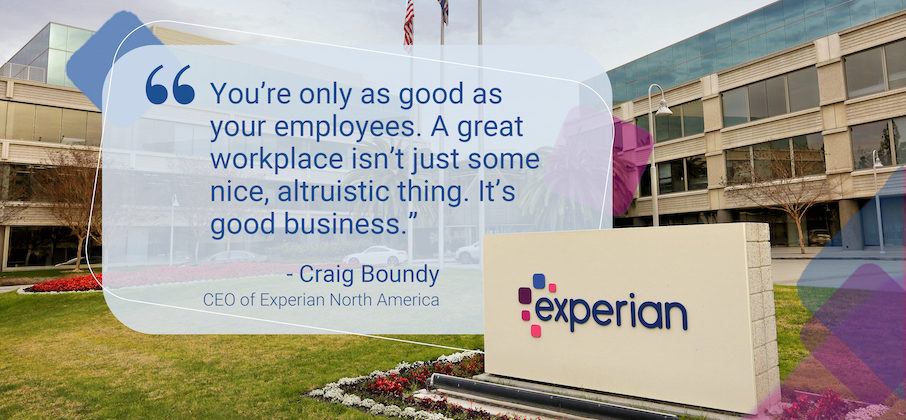There are many variations of passages of Lorem Ipsum available, but the majority have suffered alteration in some form, by injected humour, or randomised words which don’t look even slightly believable.

Paragraph block
Heading block
Pull Quote cloud news blog
There are many variations of passages of Lorem Ipsum available, but the majority have suffered alteration in some form, by injected humour, or randomised words which don’t look even slightly believable.
There are many variations of passages of Lorem Ipsum available, but the majority have suffered alteration in some form, by injected humour, or randomised words which don’t look even slightly believable.
- There are many variations of passages of Lorem Ipsum available,
- but the majority have suffered alteration in some form, by injected humour, or randomised words which don’t look even slightly believable.

Lorem Ipsum has been the industry’s standard dummy text ever since the 1500s, when an unknown printer took a galley of type and scrambled it to make a type specimen book. It has survived not only five centuries, but also the leap into electronic typesetting, remaining essentially unchanged. It was popularised in the 1960s with the release of Letraset sheets containing Lorem Ipsum passages, and more recently with desktop publishing software like Aldus PageMaker including versions of Lorem Ipsum.

Through Experian’s technology and cutting-edge innovations, we’re helping consumers build their credit histories and access affordable, mainstream financial products. We are truly improving consumer’s financial lives in a meaningful way. But, with all the exciting innovations in technology, sometimes, it’s easy to forget the impact we can create in our everyday interactions with people. Let me give you an example. I recently traveled to Nashville, TN for a conference. Since I didn’t know my way around the area, I hired a driver to pick me up and take me to my hotel. As I was heading to the airport exit, I saw a woman holding a sign that read “Experian.” I introduced myself and we both got into the car and headed for the hotel. As we were driving, she asked, “So, do you really work at Experian?” “Here we go…” I thought as I responded, “Yes, I do.” She went on to tell me she was a Desert Storm veteran who faced some real financial hardships that tanked her credit score when she returned home from war. She saw a commercial for Experian Boost, our new tool that allows people to get credit for paying their telecom and utility bills on time. After trying the free tool, her score went up 11 points. This boost got her thinking about other ways she could improve her credit score. I spent the rest of our drive sharing some credit education including the importance improving her debt to income ratio, lowering utilization rates and making on time payments. As we pulled up to my hotel and I got out of the car, she asked if she could give me a hug. “Of course,” I said. I was touched and slightly surprised, to see how much of an effect I had on her. Only, I didn’t realize then just how much of an impact our conversation would truly make on her life. I recently had a chance to reconnect with Renee Preston. She told me about the dramatic changes she’s made since we met that are creating a lasting impact on her financial health. At the time Renee picked me up, she was $56,000 in debt and her credit score was 605. Just a few months after meeting her, Renee put some of the credit education tips I shared with her into practice. Since then, she’s lowered her debt by $36,000 and her credit score has improved by more than 60 points. While Renee knows she still has work to do, she is inspired to continue to improve her financial wellbeing. “I’ve been driving for more than 26 years. I’ve met all kinds of celebrities like Pink and Justin Timberlake. The fact that Alex took the time to talk to a little person like me, it really meant a lot. Since we met, I’ve taken a lot of steps to improve my credit and finances including getting a job with a much higher salary. I truly feel I owe all of these changes to Alex.” Renee Preston, Nashville, TN As a company, we are committed to helping people improve their financial lives. When we talk about being the consumer’s bureau, this is exactly what we mean. I’m so thankful I had the opportunity to meet Renee. I’m inspired to continue to find new ways to improve people’s financial health, both personally and as a leading member of Experian’s team.

As 2019 comes to a close, many people are outlining their goals for the new year. For some people, this means making plans to get healthier, reconnect with old friends or find a new job. For many, improving financial health comes in at the top of the list. In fact, we know saving more is a top resolution for 50% of people and one in three want to improve their credit scores in 2020. Saint Exupery once said, “a goal without a plan is just a wish” and he was right. When setting any goal, it’s important to put a plan in place. An essential first step toward creating an effective plan of action is getting a grasp of your current situation. The same is true for creating and achieving goals related to improving your financial health. Each year, we take a look at how Americans across the country are managing their credit to help people understand the purpose and impact of their credit scores. Our annual State of Credit report highlights average credit scores, debt levels and delinquency rates of people across America. In releasing this report, we hope to give people insight to help them make more informed decisions about credit use as we prepare to head into a new decade. Our latest report showed the average credit score hit an eight-year-high at 682. While people are taking on slightly more credit card, mortgage and nonmortgage debt year-over-year, delinquency rates are decreasing on average and utilization remains consistent at 30%, which means people are responsibly managing the debt they’re carrying. If your credit score is lower than you’d like, or if you’re looking for ways to maintain a positive credit history and improve your financial health, here are five ways you can better your financial standing in 2020: Check your credit report and credit score. Your credit report serves as your financial references. Take care of your credit report and you will take a big step toward better financial health. Credit scores play an important role in your financial journey. They translate the information in your credit report into a number reflecting the risk of doing business with you. Check your credit score at the same time you check your credit report. When you get credit score you should receive an explanation of what the score means and what from your credit report is most affecting it. This is an important step to gauge your current standing and to develop a plan to improve your credit report and scores. You can get a free credit report once every 12 months from Experian by visiting www.annualcreditreport.com or through the Experian app. Keep your utilization rate low. Your utilization rate, or balance-to-limit ratio, should never exceed 30 percent of your credit limit. At a maximum, your total credit card balances should not be more than 30 percent of your total credit card limits, and you don’t want any one card to have a balance of more than 30 percent of the limit of that one card. Both can hurt you. This doesn’t mean that you want to get your balances up to 30 percent and keep them there. The lower your utilization rate, the better. People with the best credit scores have utilization rates of less than 10 percent. As you head into 2020, focus on reducing your credit card balances and keeping your balances low. Use the tools available to you like Experian Boost. If you’re paying your cell phone, cable, satellite and utility payments on time, you can use our free tool, Experian Boost, to potentially increase your credit scores in the new year. We see scores improve for two out of three people who use Experian Boost with an average increase of more than 10 points. Plan ahead for major credit purchases. For many, the start of a new year can mean a new car, a new home and more. When preparing to make a major purchase, it is critical to demonstrate financial stability in the three to six months leading up to it. While it is important to optimize your scores before purchasing a house or a car, be careful not to make too many big moves right before your purchase. Closing accounts or applying for new credit could temporarily reduce your scores, so don’t open any new accounts during the months leading up to your purchase. Wait to close accounts or apply for new ones until after you have the keys to that car or house in hand. Pay on time, every time. Nothing will hurt your credit score more than missed or late payments. To maintain a positive credit history, make a plan to catch up on any missed payments. Enrolling in autopay can be a helpful way to stay on a payment schedule that works for you. Remember, credit can be a financial tool, but debt is a financial problem. Create your financial game plan for 2020 and use these tips to prepare for a financially healthy new year. If you need help along the way, visit the Ask Experian blog or tune into our weekly Credit Chat.

For the past seven years, Experian’s perennial presence on the Orange County Register’s list of Top Workplaces has been the cause for real celebration across our workforce, making this year more special with added honor of receiving the Award of Excellence for its corporate values. “We embrace strong corporate values and celebrate a diversity of ideas and backgrounds across the company. This diversity of thinking and the way we harness it at Experian helps to fuel our innovation and ultimately our ongoing success as a business,” said Craig Boundy, former chief executive officer of Experian North America. “This award is a credit to all the talented people who work here at Experian, bringing a strong drive to perform around a shared mission.” We celebrate our diversity through a range of fun, engaging and informative cultural events, including those supported by our Employee Resource Groups (ERGs). Employees can also join one of our many social clubs to share interests with colleagues, or volunteer with nonprofit organizations to give back to the communities of which Experian supports. Our culture of inclusion is truly something to celebrate and that’s because of every single person who makes up the Experian family and brings our brand to life every day. Experian’s mission is to create a better tomorrow through data, connecting consumers and businesses with more opportunities than ever before. This is supported by our culture of continuous innovation, from the way we work to the solutions we create. This commitment to innovation has helped us create a workplace where our teams across the world have a desire to help change the lives of millions for the better. The diversity of thinking across Experian, and the way in which we harness it, helps fuel our innovation and ultimately our ongoing success as a business. This makes our work relevant to our consumers and clients, adding more value in their own lives – creating a better tomorrow for them. As part of this, our culture works to connect employees to our brand, by involving them in the creation of new products and services. This has had a tremendous positive impact with employees providing valuable feedback and creating advocacy among team members. For example, when developing Experian Boost, which has helped millions of people raise their credit scores, we first beta-tested and shared the innovation internally and were able to garner valuable feedback and support from employees. As a result, we’ve seen tremendous success since the launch of Experian Boost earlier this year. Innovation and Business Success Our culture of diversity and inclusion has enabled Experian to grow and evolve while remaining at the forefront of innovation. For more than 40 years, Orange County has been the heart of our North America operations. We’ve remained focused on developing a culture that achieves and sustains higher performance while giving back to the community, and we’ve strengthened the business across every front. As a result, we continue to have a positive impact on consumers, businesses and the economy. We do this with our products, technology, and innovations — from finding breakthroughs around better utilizing data, to identifying ways we can make access to credit faster and simpler for millions around the world. We’re very proud to be named a Top Workplace by the Orange County Register for our positive workplace culture, which attracts and retains top talent in Orange County, as well as our other locations across North America.
In this article…
First Heading
Lorem Ipsumis simply dummy text of the printing and typesetting industry. Lorem Ipsum has been the industry’s standard dummy text ever since the 1500s, when an unknown printer took a galley of type and scrambled it to make a type specimen book. It has survived not only five centuries, but also the leap into electronic typesetting, remaining essentially unchanged.
It was popularised in the 1960s with the release of Letraset sheets containing Lorem Ipsum passages, and more recently with desktop publishing software like Aldus PageMaker including versions of Lorem Ipsum
- test1
- test1

Second Heading
It is a long established fact that a reader will be distracted by the readable content of a page when looking at its layout. The point of using Lorem Ipsum is that it has a more-or-less normal distribution of letters, as opposed to using ‘Content here, content here’, making it look like readable English.
Many desktop publishing packages and web page editors now use Lorem Ipsum as their default model text, and a search for ‘lorem ipsum’ will uncover many web sites still in their infancy. Various versions have evolved over the years, sometimes by accident,
How Experian can help with card fraud prevention and detection
Contrary to popular belief, Lorem Ipsum is not simply random text. It has roots in a piece of classical Latin literature from 45 BC, making it over 2000 years old. Richard McClintock, a Latin professor at Hampden-Sydney College in Virginia, looked up one of the more obscure Latin words, consectetur, from a Lorem Ipsum passage, and going through the cites of the word in classical literature, discovered the undoubtable source.
Lorem Ipsum comes from sections 1.10.32 and 1.10.33 of “de Finibus Bonorum et Malorum” (The Extremes of Good and Evil) by Cicero, written in 45 BC. This book is a treatise on the theory of ethics,
very popular during the Renaissance. The first line of Lorem Ipsum, “Lorem ipsum dolor sit amet..”, comes from a line in section 1.10.32.

Fourth Heading
Lorem Ipsum has been the industry’s standard dummy text ever since the 1500s, when an unknown printer took a galley of type and scrambled it to make a type specimen book. It has survived not only five centuries, but also the leap into electronic typesetting, remaining essentially unchanged. It was popularised in the 1960s with the release of Letraset sheets containing Lorem Ipsum passages, and more recently with desktop publishing software like Aldus PageMaker including versions of Lorem Ipsum.
